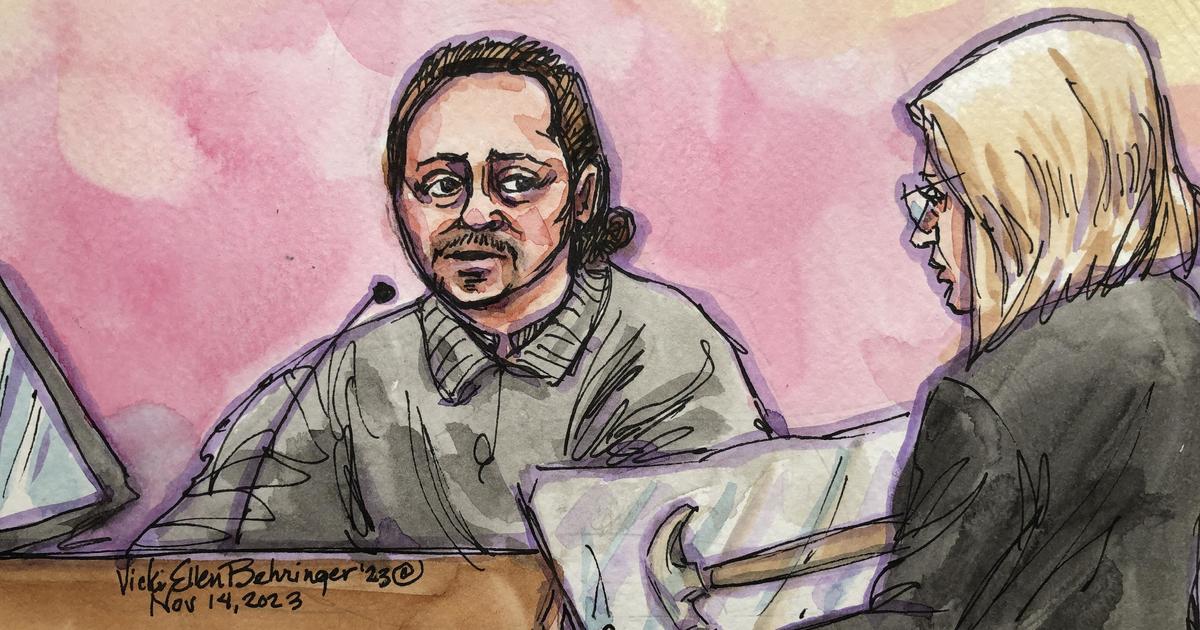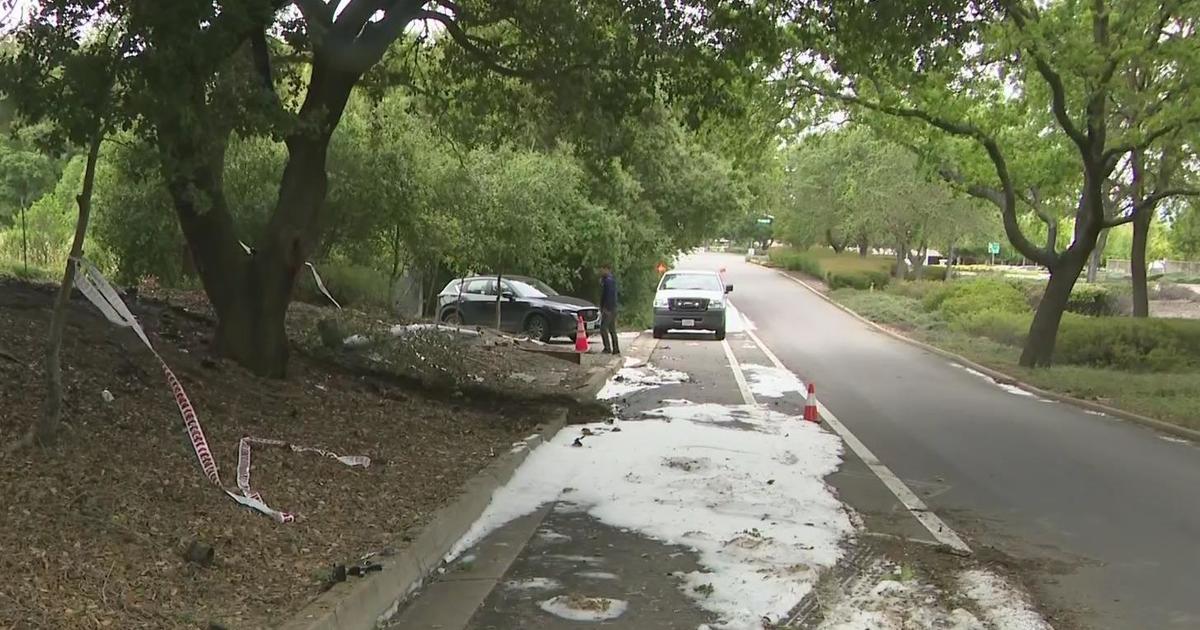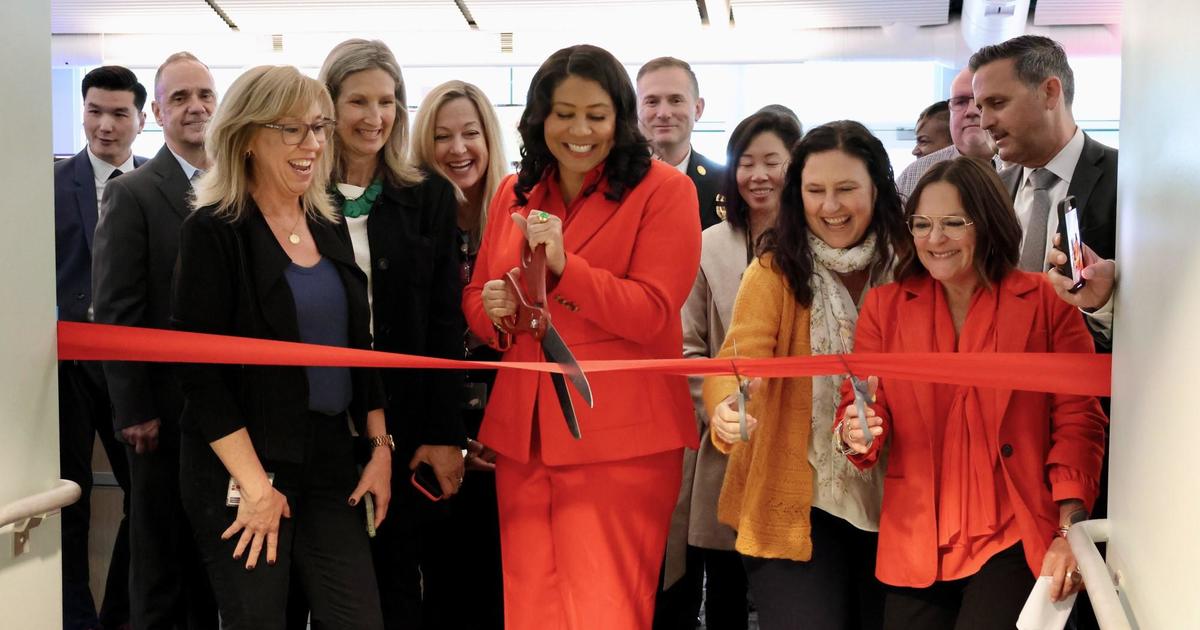Federal Judge Pushes Bank of America To Resolve EDD Debit Card Hacks
SAN FRANCISCO (CBS SF) -- A possible day of reckoning lies ahead for Bank of America, in connection with an epidemic of hacking attacks on unemployment debit cards that KPIX 5 was first to expose last fall.
RELATED: KPIX EDD Fraud Special Section
A federal judge says he is prepared to issue a preliminary injunction against the bank that would force it to unfreeze accounts and start paying victims back. But he's giving the bank one more chance to work it out with plaintiffs in a class action lawsuit.
Statement from Bank of America spokesperson Bill Halldin:
"We appreciate the judge's recognition of the difficult situation that EDD and Bank of America have faced given the pandemic and unprecedented criminal fraud as we continue to work to ensure legitimate claimants get the benefits to which they are entitled. We welcome the opportunity to discuss this further with plaintiffs and the magistrate judge."
In court filings Bank of America reveals it has received approximately 255,000 claims, 150,000 were denied. Of those denied 27,000 asked for reconsideration. Of those, there were 15,000 decisions reversed.
As we have been reporting one of the biggest problems with Bank of America EDD debit cards is that they don't have a security chip. That makes it all too easy for fraudsters to duplicate the cards and siphon cash out of legitimate accounts.
So for the hundreds of thousands of people who have one of these cards and had money stolen help can't come soon enough. Among them, Robert Leonard. He says he found out his card was hacked when he went to Lucky supermarket to use the ATM.
"It said maximum withdrawal had been reached," Leonard said.
So he says he called Bank of America.
"They said, well, $1,003 was taken from a Wells Fargo ATM in San Francisco. I said, well, that wasn't me," said Leonard. He has been out of work for months and so he and his therapy dog Albie desperately need the money to survive. "My card was copied. And how did they get a pin number?" Leonard said.
The San Francisco resident is the latest victim to contact KPIX with what has become a sadly all to familiar story. Tatiana Solorzano was one of them.
"My heart dropped. I was scared, you know, I thought they were going to do it again, you know," Solorzano said.
Over the past 7 months we have interviewed dozens of people whose unemployment debit cards were hacked. Many told us their funds were stolen in cash from ATMs.
"Pulled out a thousand dollars, next day a thousand dollars, next day a thousand dollars" Brian Birkhoffer said.
Others got big ticket charges on their card from high end stores, like Brooke Suchomel.
It had been drained overnight, before the rent was due," Suchomel said.
And some accounts were literally hijacked.
"They had removed my bank account information, they had put their routing information, their bank account," Michelle Brrionuevo Mazzini said.
But despite providing police reports and other evidence all the victims got the same letter from the bank, denying their claim with no provisional credit even though it's required by law.
"They're just writing me off for my money?" said Robert Leonard.
"The letter was dated the 20th, I didn't make the initial claim until the 19th, so nothing was investigated," said another victim, Erica Young.
Throughout the many months of covering this story Bank of America denied our requests for interviews. In the bank's one and only appearance in Sacramento in January, lawmakers were stonewalled as well.
But now a federal judge is stepping into the fray. After reading affidavits from dozens of fraud victims in a class action lawsuit the judge has ordered Bank of America to meet with the plaintiffs to work out some immediate solutions.
"The court issued a very strong order that the plaintiffs have shown a strong likelihood of success," said Brian Danitz with the firm Cotchett, Pitre and McCarthy, LLP.
Danitz represents Jennifer Yick, the lead plaintiff in the federal complaint.
"We are looking for relief that will require Bank of America to investigate claims of unauthorized transactions in good faith and provide provisional credit as required under federal law," Danitz said.
Meanwhile back in Sacramento the push is on to bypass Bank of America altogether.
AB 74 sponsored by Assemblywoman Lorena Gonzalez would require EDD to provide claimants another option: Direct deposit.
"When you're dealing with a third party bank it's not their priority to serve you," Gonzalez said. "And so this just makes sense and it makes more and more sense the further we get into this and we realize all the potential fraud and problems that have been created through the Bank of America debit card."
But cutting ties with the bank may not be as simple as it might seem. That's because the current contract with EDD is a revenue-sharing agreement. That means EDD gives the bank the taxpayer funds to distribute and the bank in return pays EDD for the privilege of handling the money. So it's profitable for both Bank of America and EDD.
Bank of America won't disclose how much money it has made during the pandemic
But we were able to obtain monthly revenue figures for EDD. Back in March of 2020 before the start of the pandemic, EDD received $290,000 from Bank of America. In May, that shot up to $2.4 million, reaching a peak of $5.7 million for the month of September.
"Actually I didn't know those numbers," Gonzalez said. "So you know it's time to review what we are doing."
Back in San Francisco Robert Leonard and his sidekick Albie just want their thousand dollars back. And after calling KPIX 5 they got it.
"Son of a gun I got a call this morning. So that was a good thing. And I thank KPIX Channel 5 News," Leonard said.



